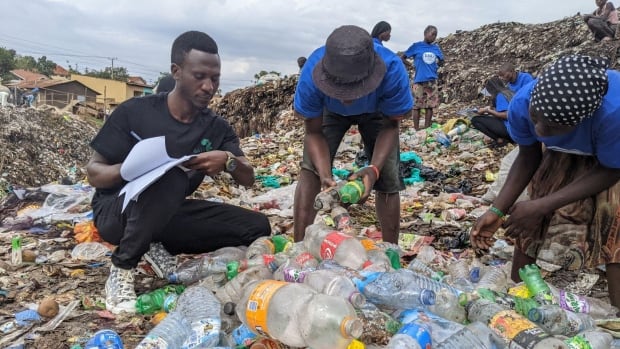A new study documenting the scourge of plastic waste around the world has found that more than half of branded plastic pollution can be traced back to just 56 companies.
More than 20 per cent of all branded pollution is linked to four brands: The Coca-Cola Company (11 per cent), PepsiCo (five per cent), Nestlé (three per cent) and Danone (two per cent).
The research, published in the journal Science Advances and led by scientists at Dalhousie University in collaboration with universities around the world, is based on audits of plastic pollution in 84 countries over a five-year period.
“They’re some of the largest corporations in the world. And they have the reach in every single country on the planet,” said co-author Tony Walker, a professor in Dalhousie’s school for resource and environmental studies.
The peer-reviewed analysis used data gathered by volunteers at more than 1,500 events at beaches, parks, rivers and other public spaces. The audits were organized by the environmental group Break Free from Plastic and took place between 2018 and 2022.
The study also notes that the production of plastic doubled, from 200 million tonnes in 2000 to 400 million tonnes in 2019.
In a statement, Coca-Cola said its goal is to make 100 per cent of its packaging recyclable globally by 2025 and to use at least 50 per cent recycled material in its packaging by 2030. The company also said it aims “to collect and recycle a bottle or can for each one we sell by 2030.”
The other top companies did not immediately return a request for comment.
Thousands of delegates are in Ottawa trying to hammer out an historic treaty to end plastic pollution, but the road to get there is littered with hurdles. CBC’s Susan Ormiston examines why it’s so hard to curb the problem and what it will take for the world to agree on a plan.
Plastic waste summit in Ottawa
The study comes as representatives from 176 countries gather in Ottawa for a summit on how to reduce plastic waste.
It is the fourth negotiating round ahead of a final session later this year in South Korea, where parties hope to sign onto a binding international treaty on plastic pollution.
As talks began Tuesday, Environment Minister Steven Guilbeault said the consensus has to be a commitment to ending the “disposable consumer culture” that results in so much waste.
Activists staged a mass “die-in” in front of Ottawa’s convention centre to protest what they described as the devastating impacts of plastic pollution on human health and biodiversity.
Recycling not a panacea
Patricia Corcoran, a professor of Earth sciences at the University of Western Ontario, said the study is “highly significant” given its global reach.
Corcoran worked on a similar study examining plastic pollution on beaches along the Great Lakes.
In both studies, “food and beverage waste is what’s out there — that’s not a surprise whatsoever,” she said.
“If you…
Read More: Coke, Pepsi top list in global count of plastic waste




